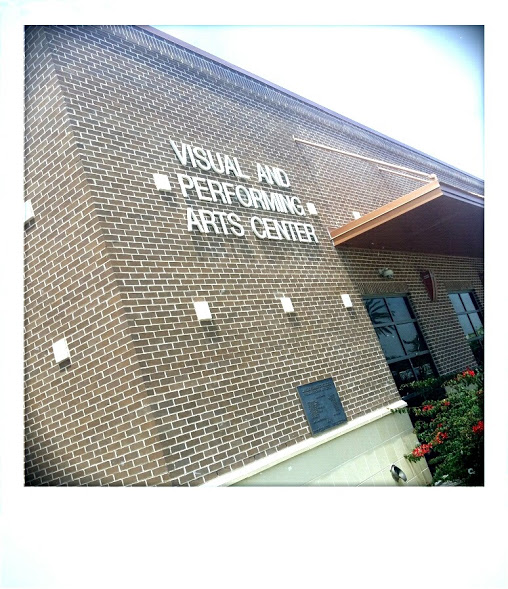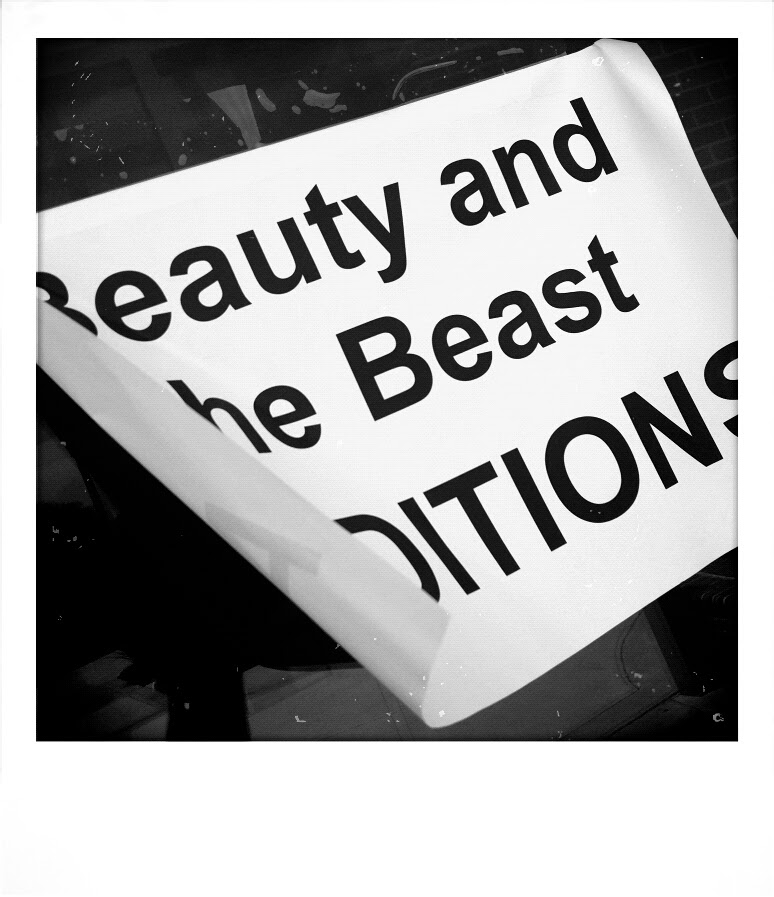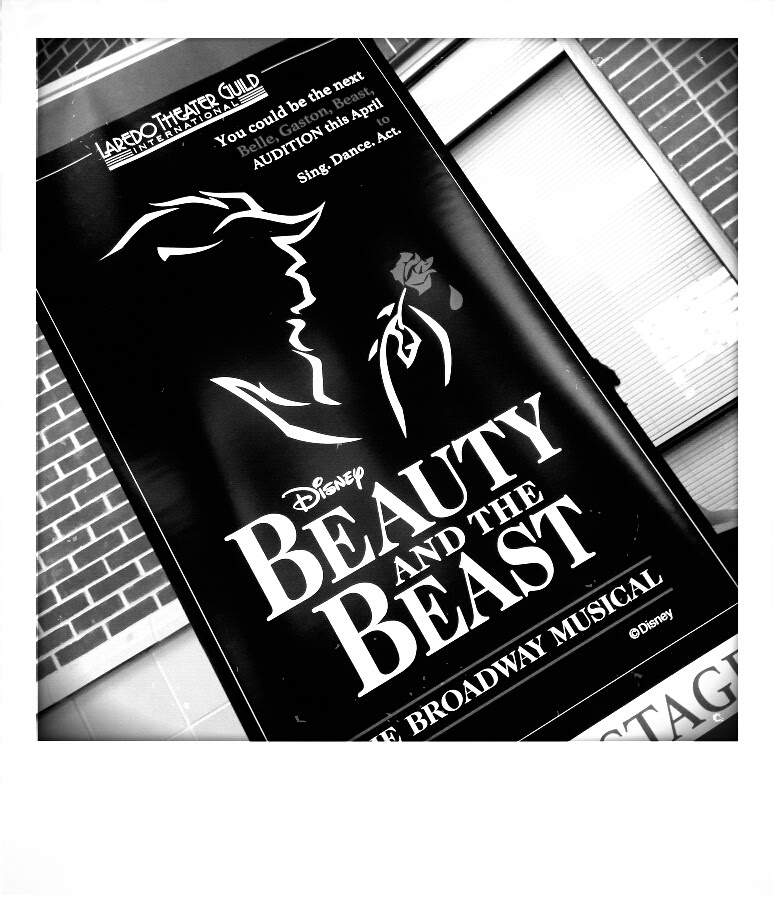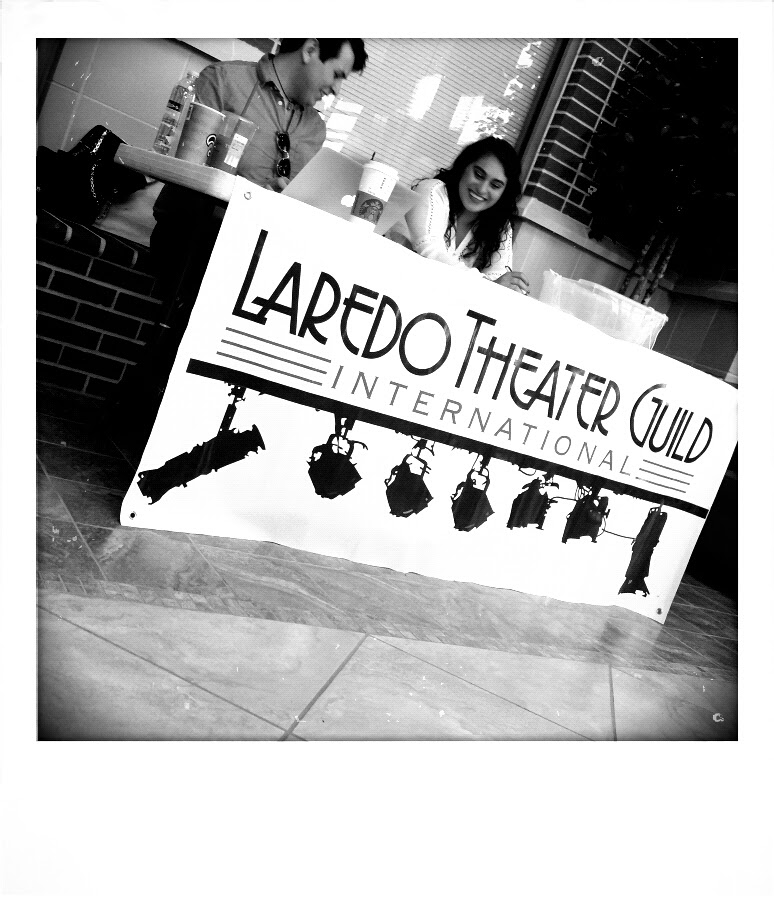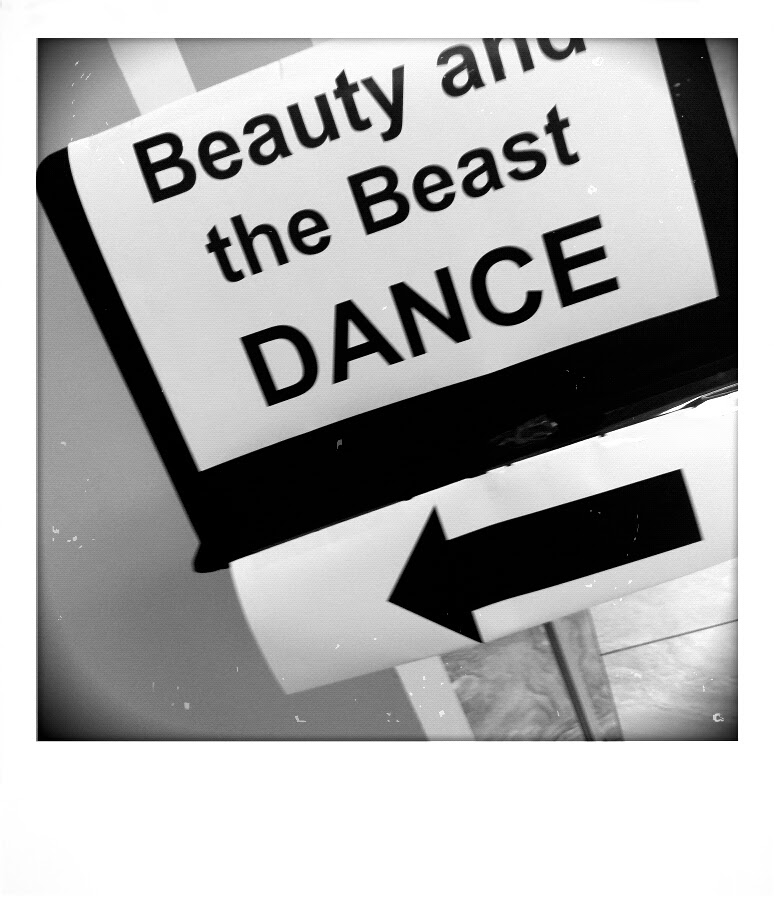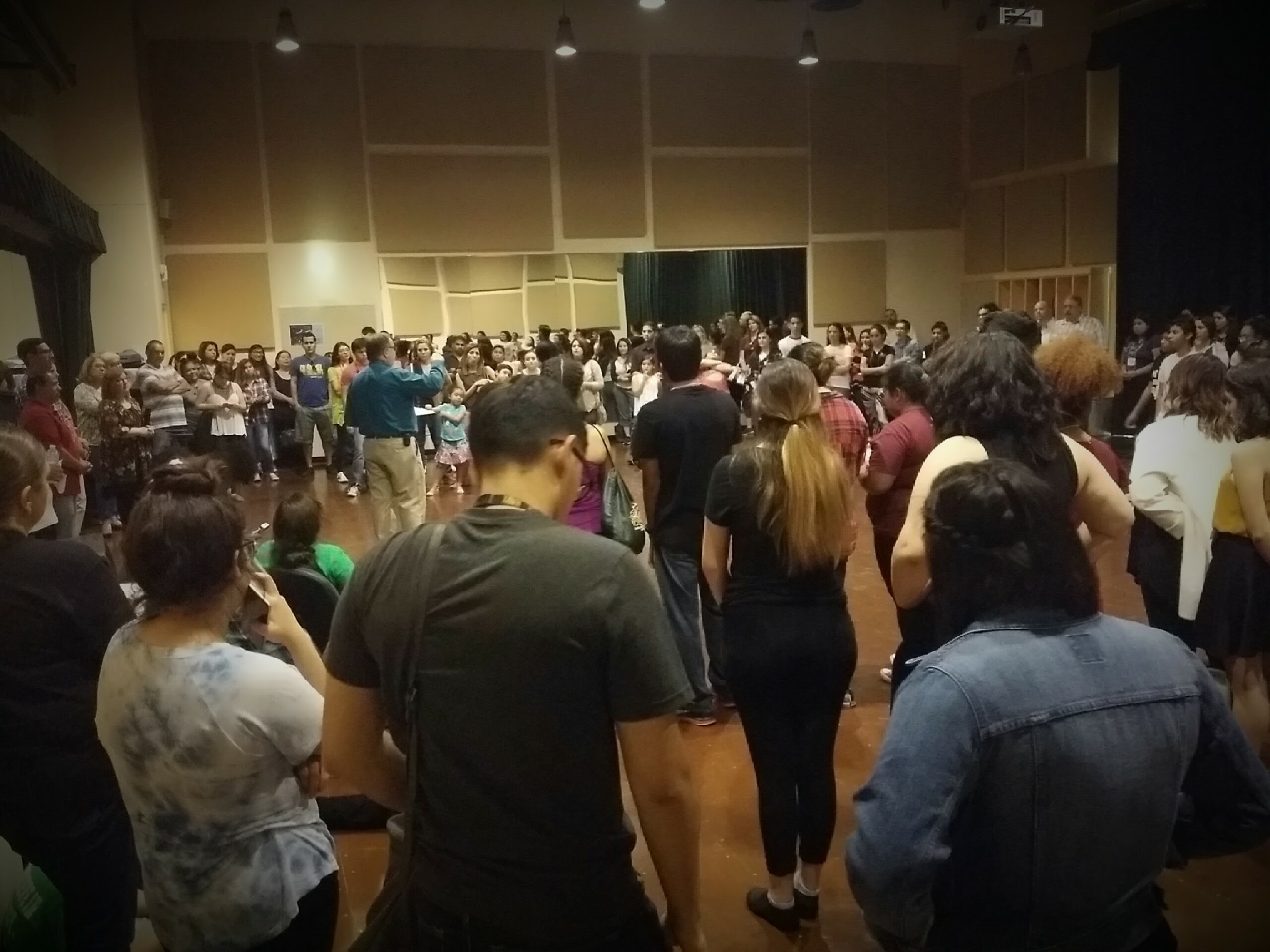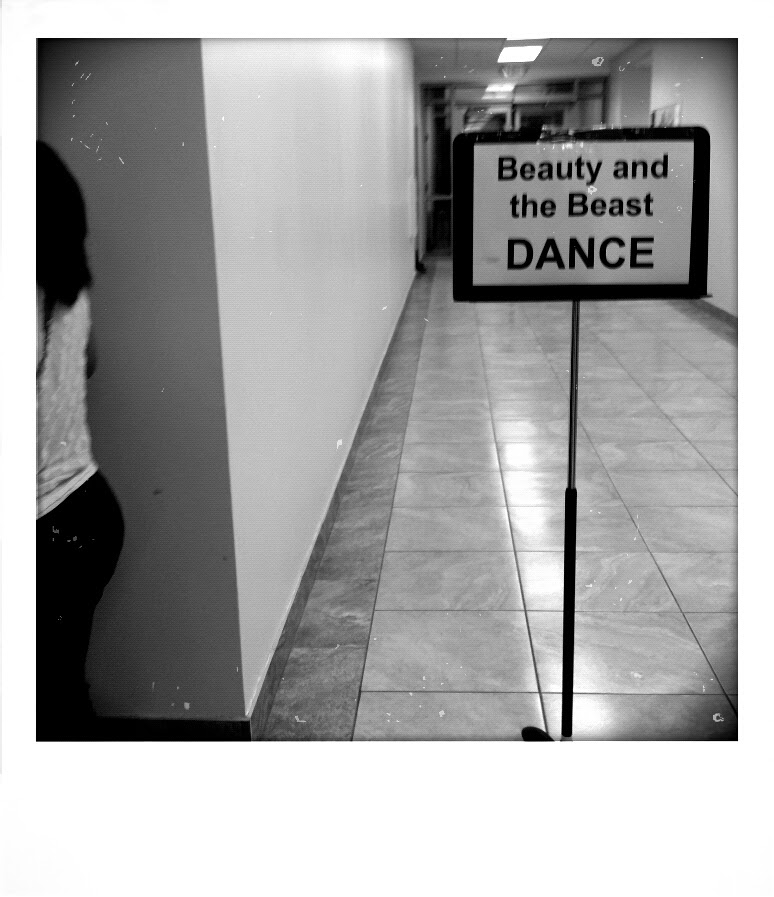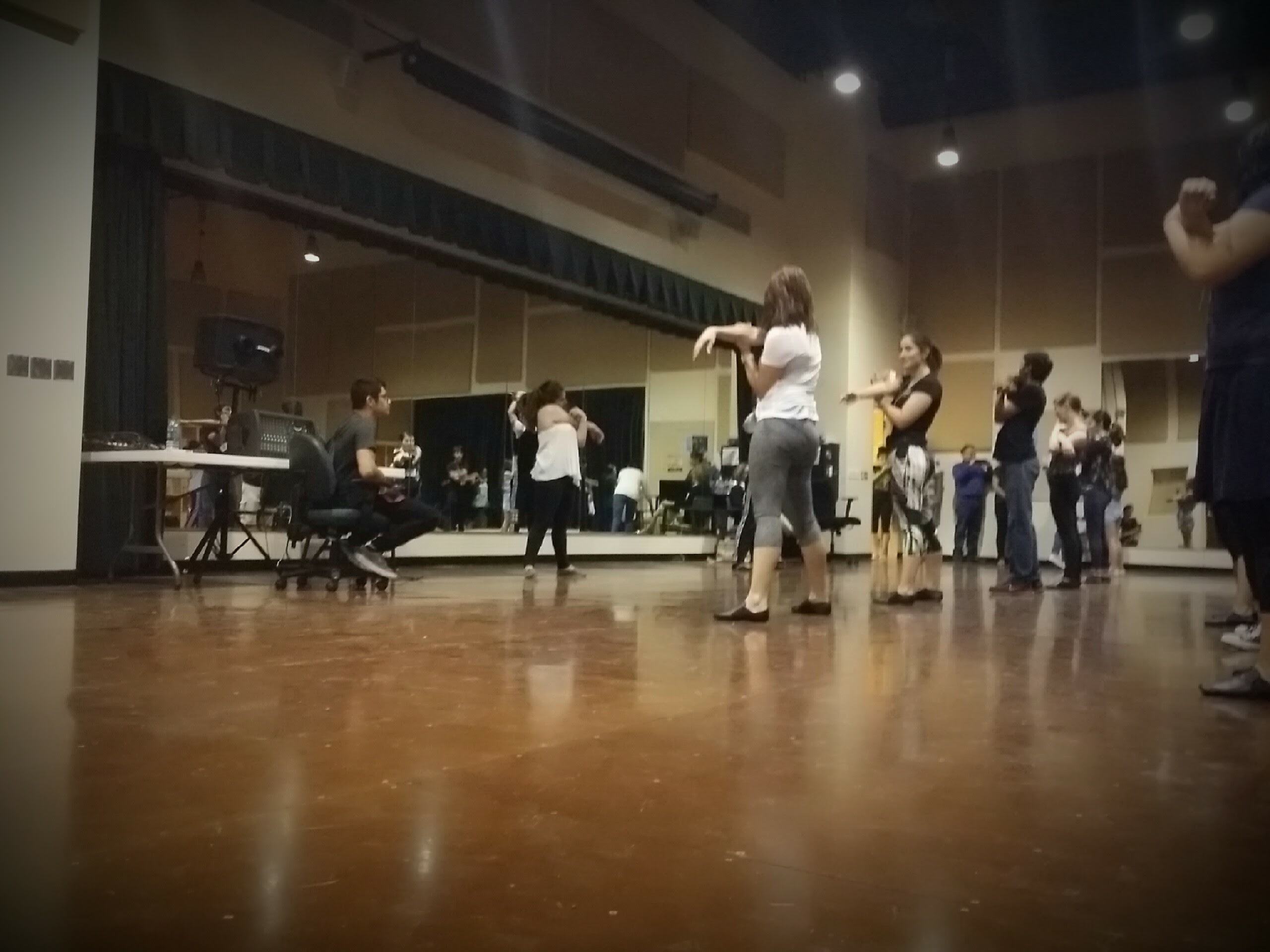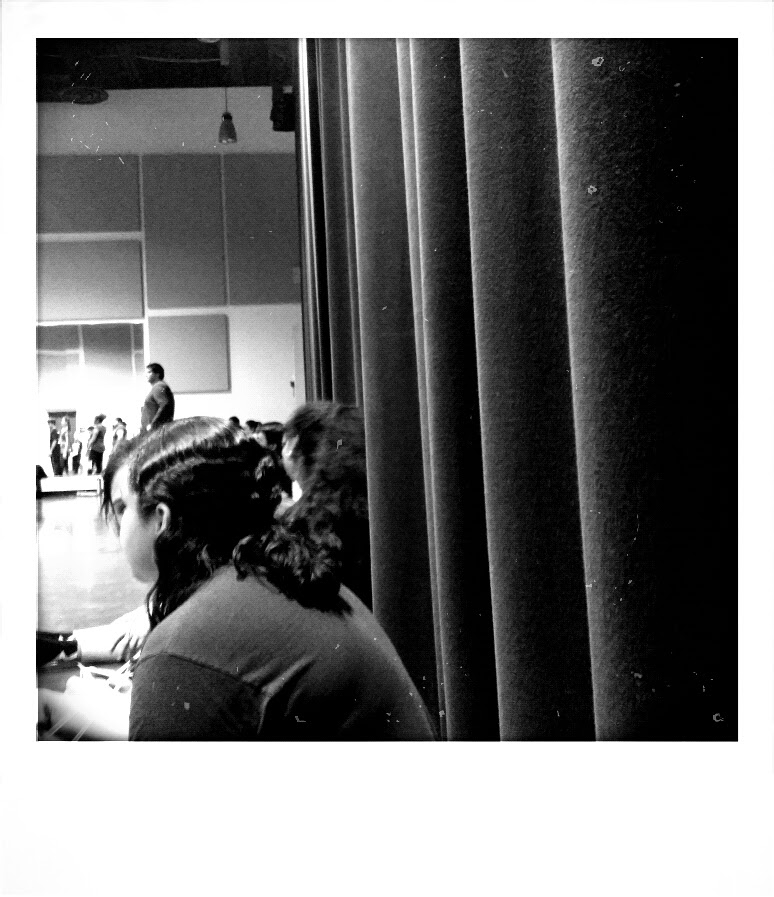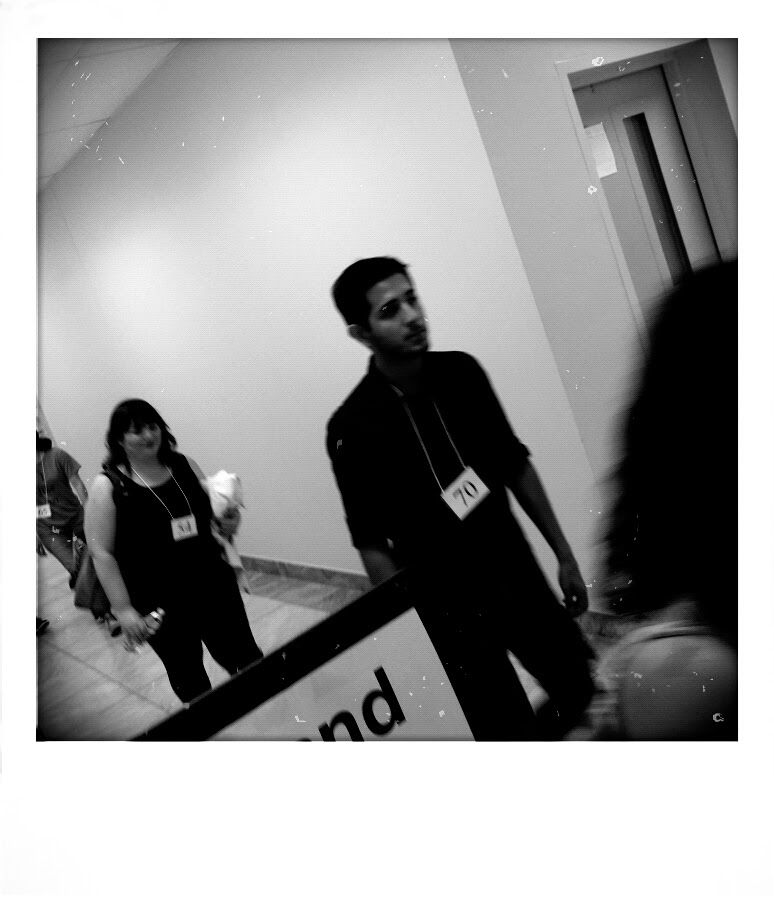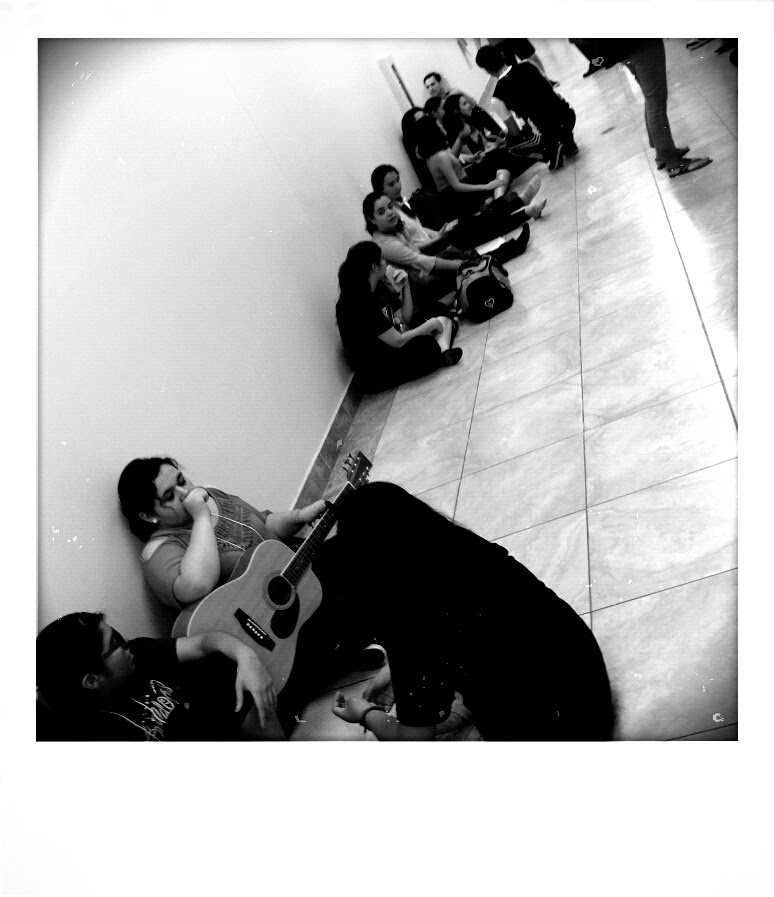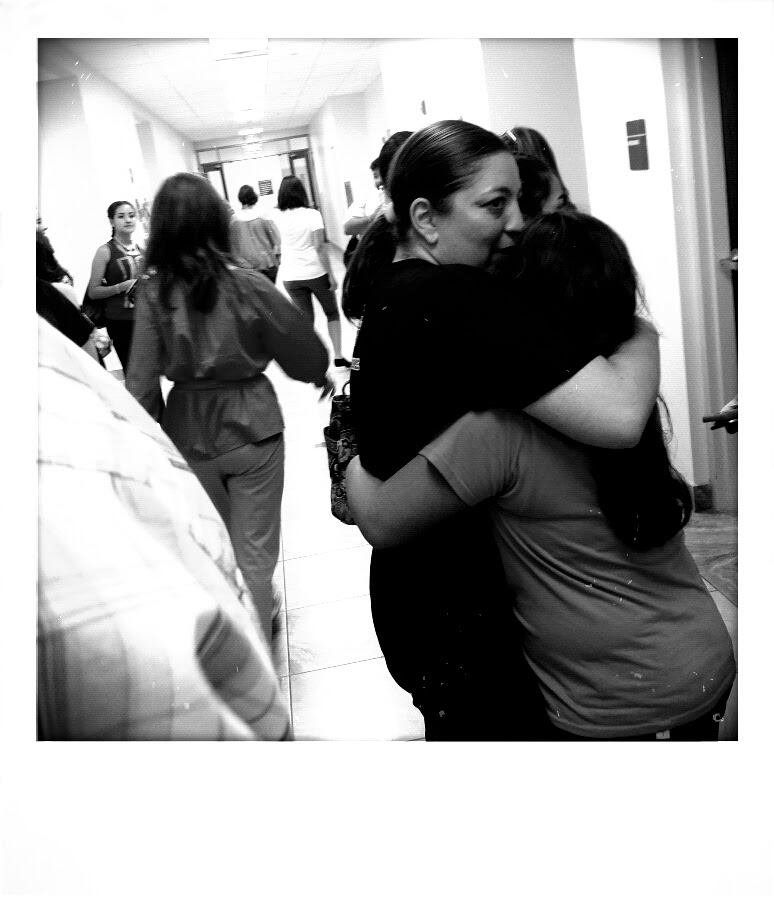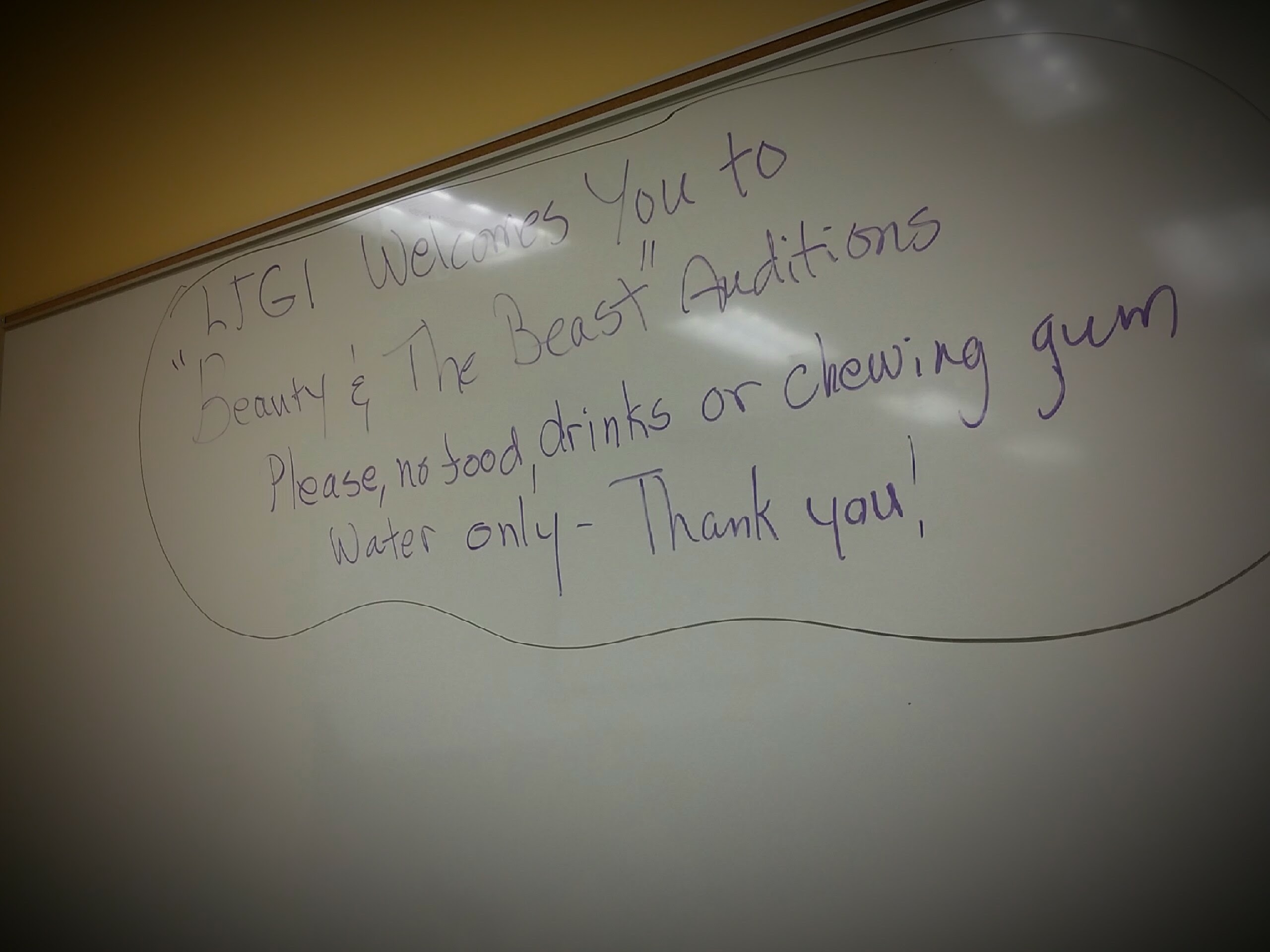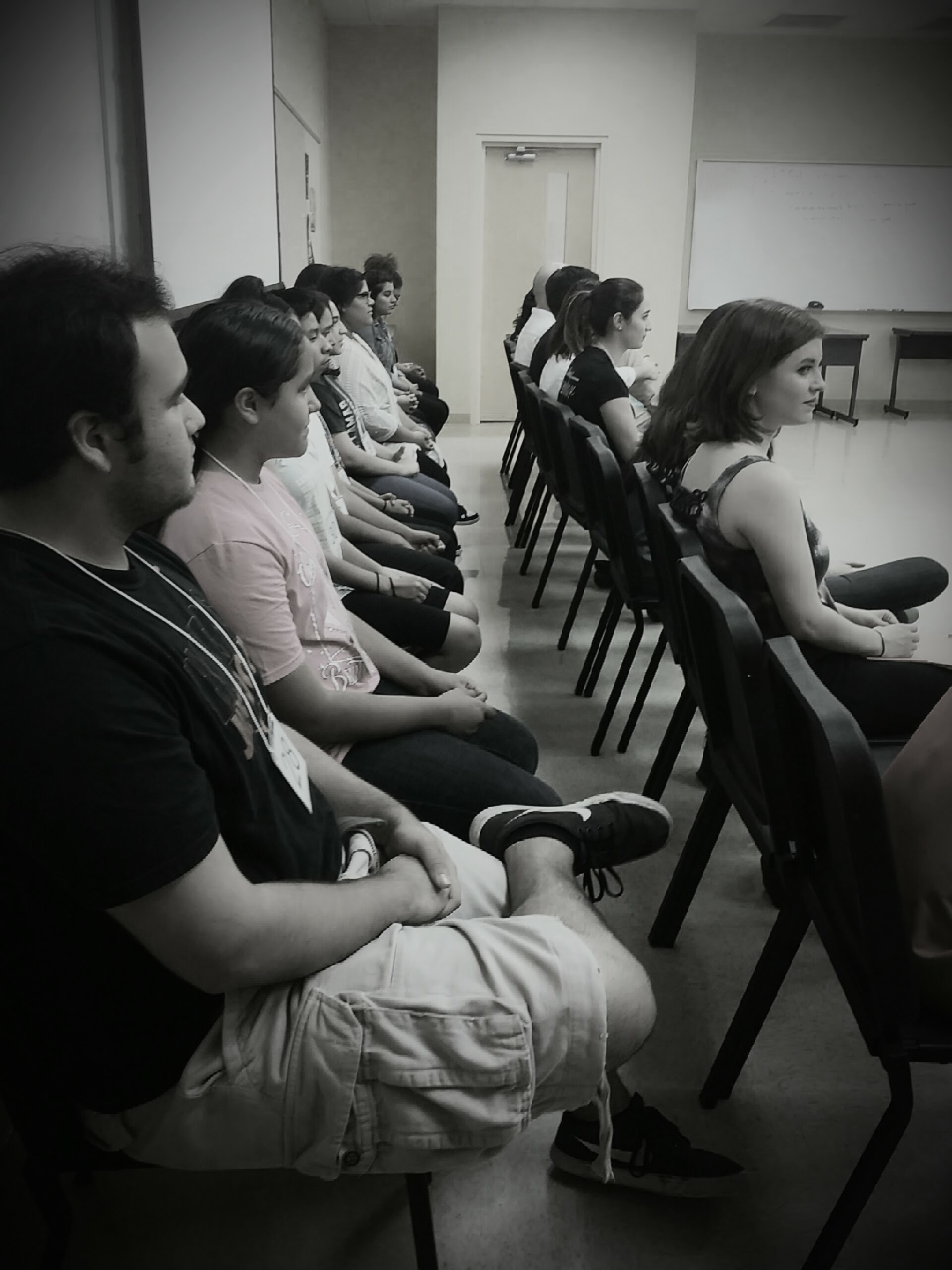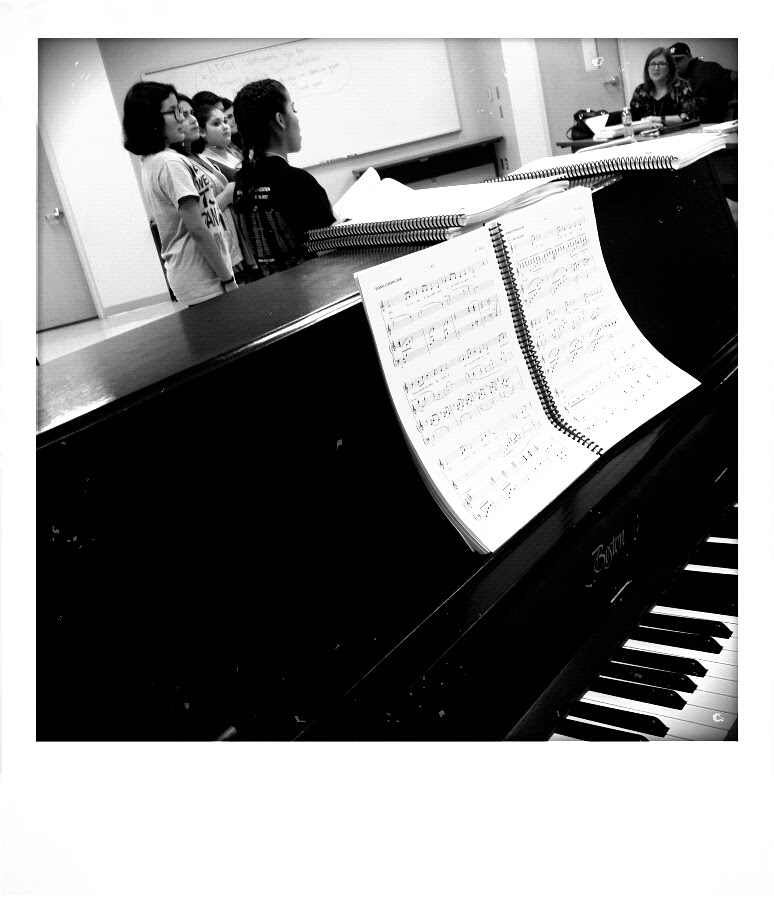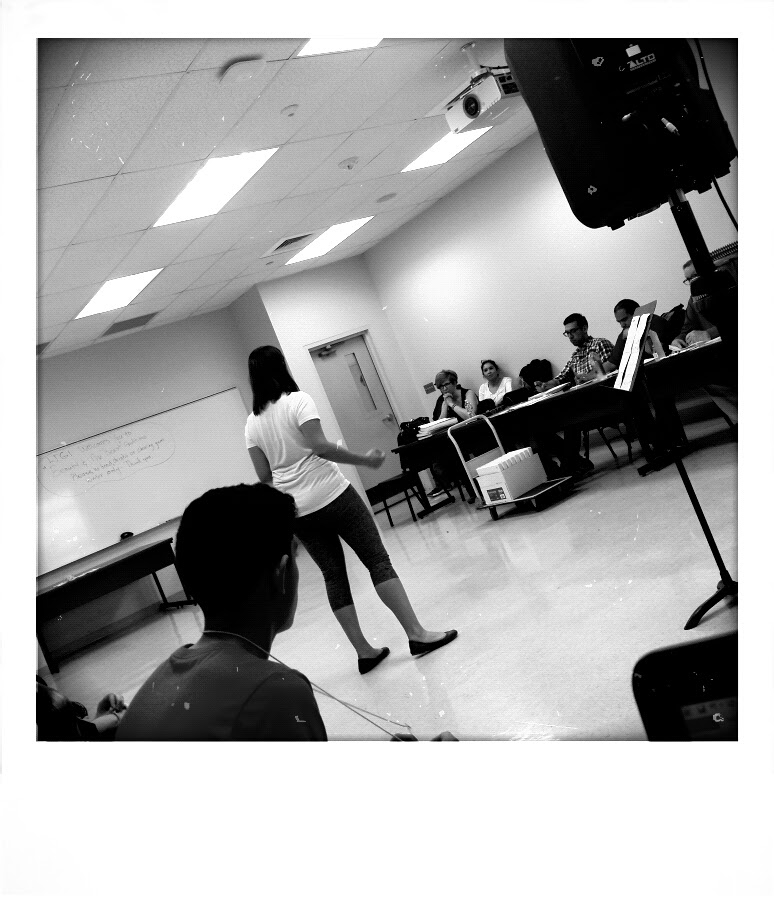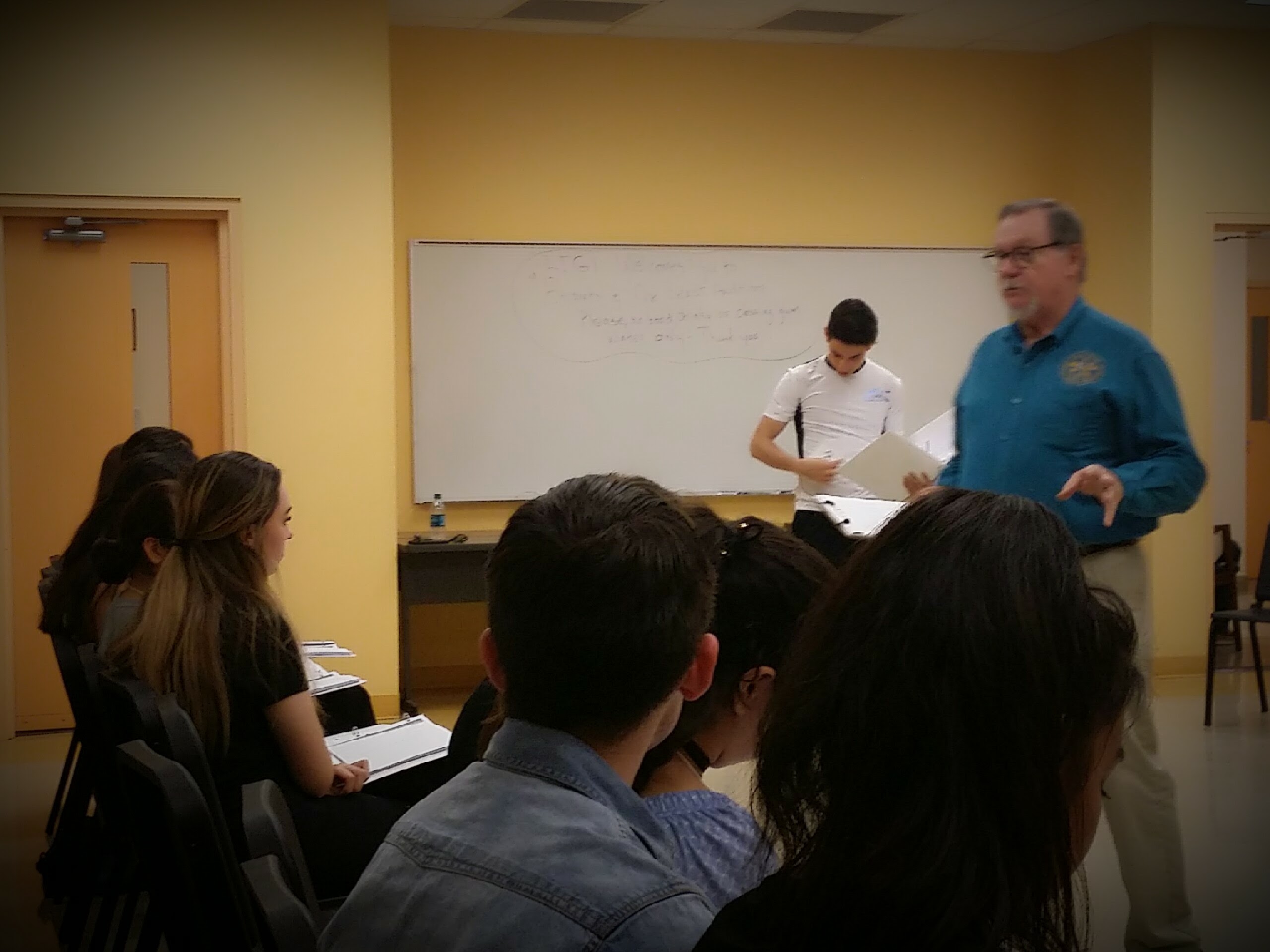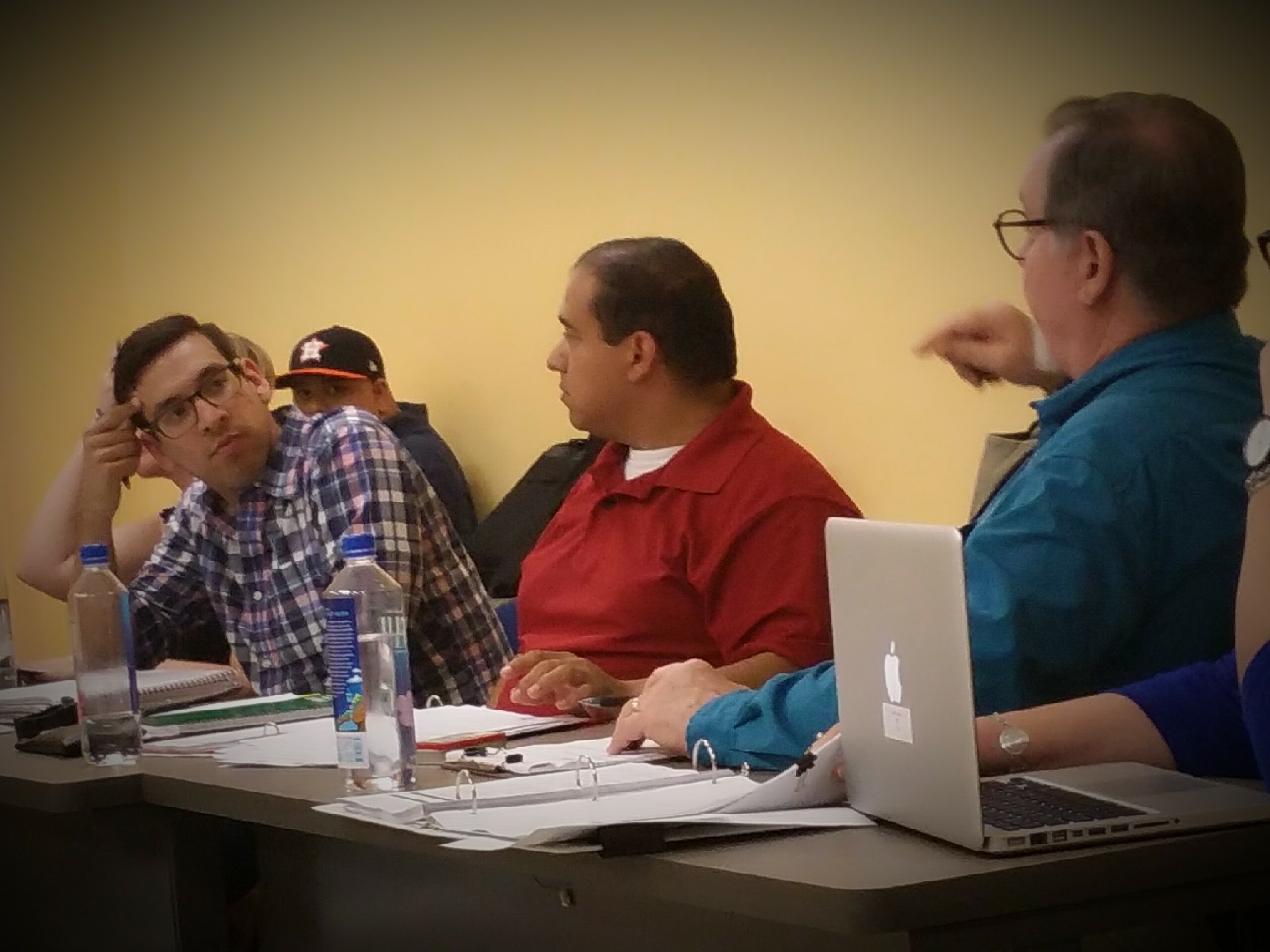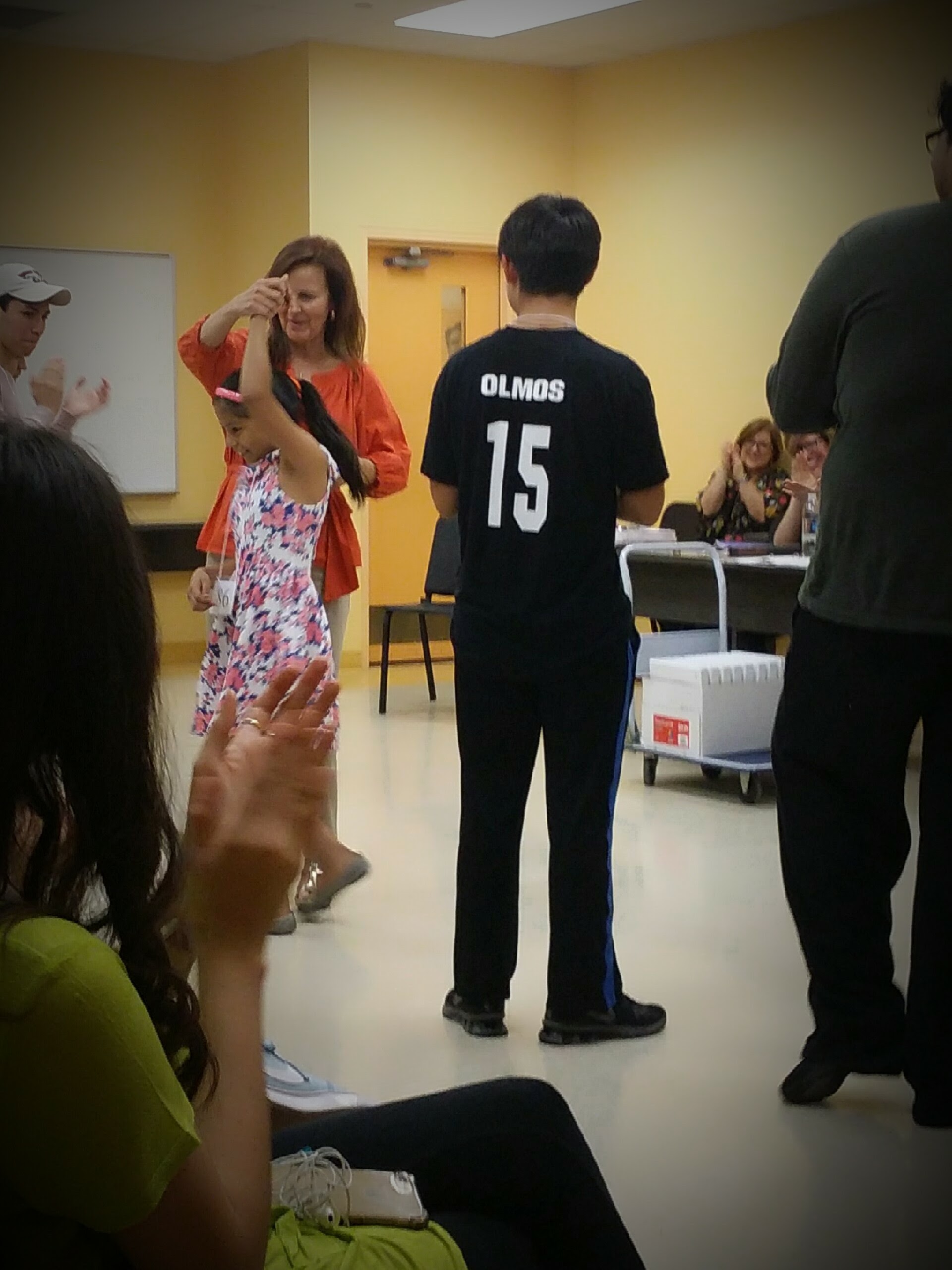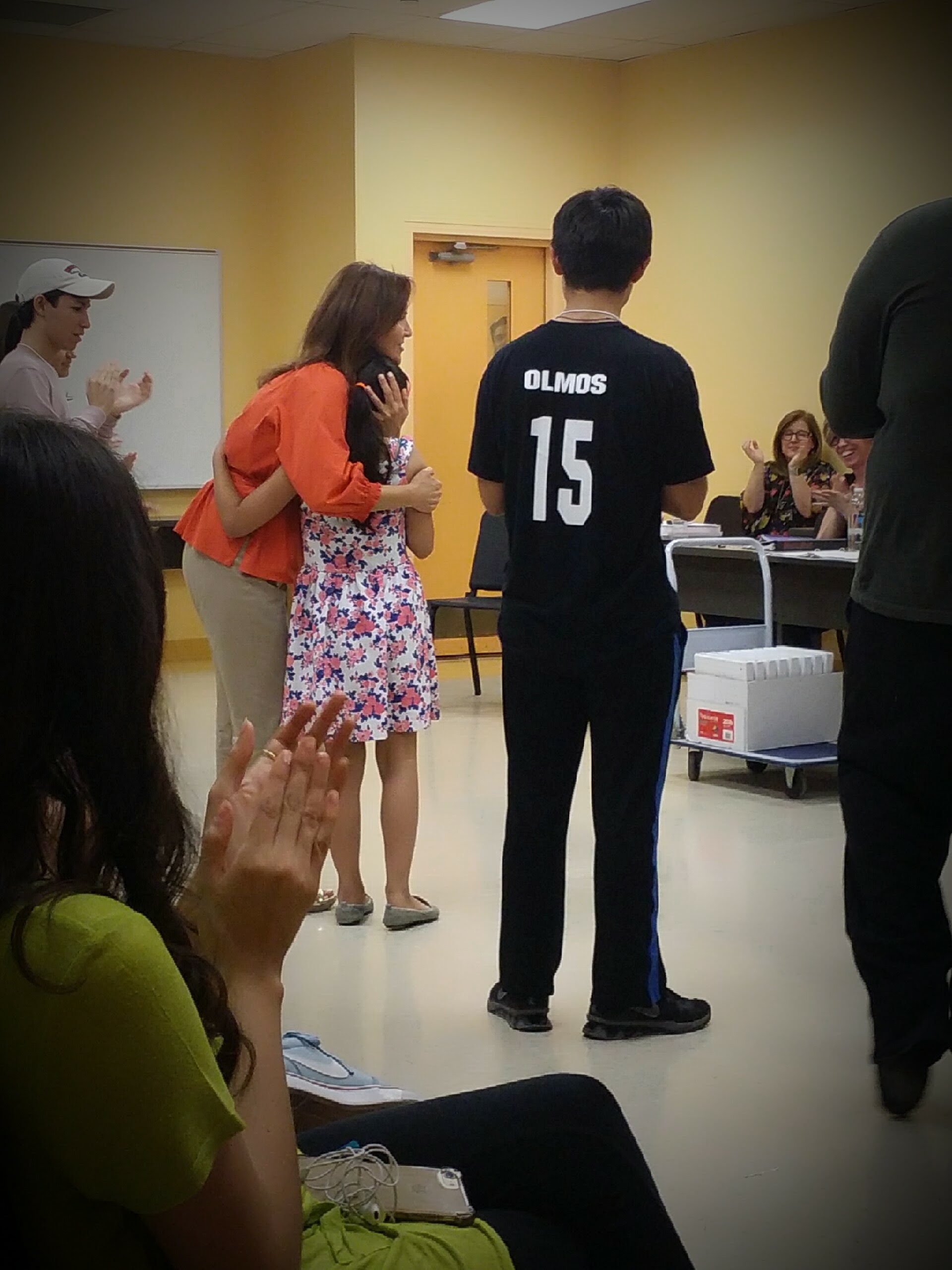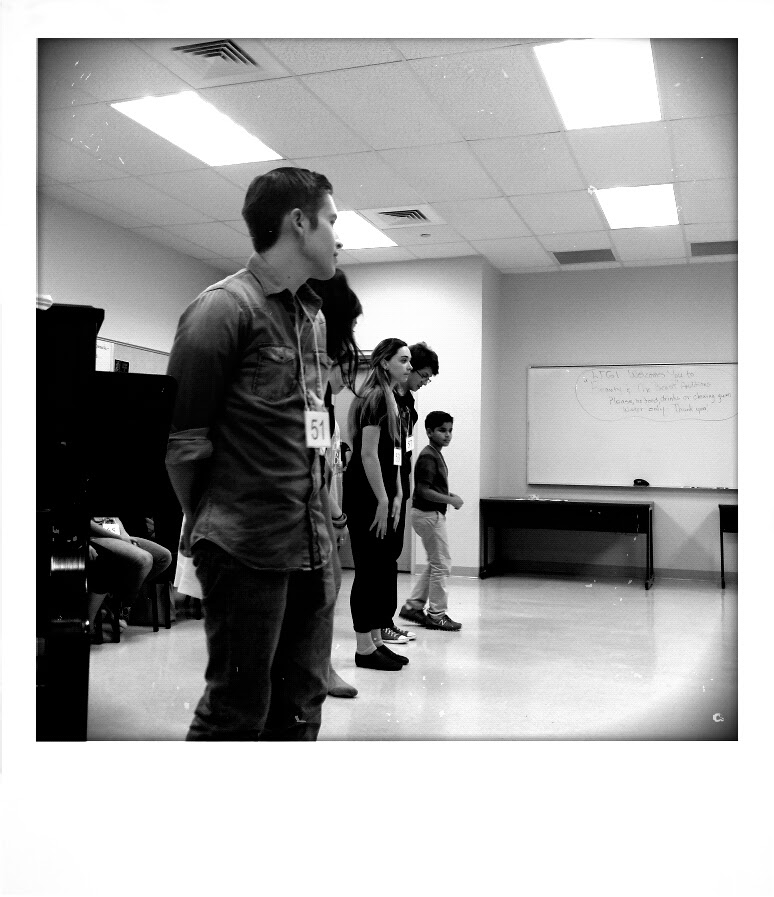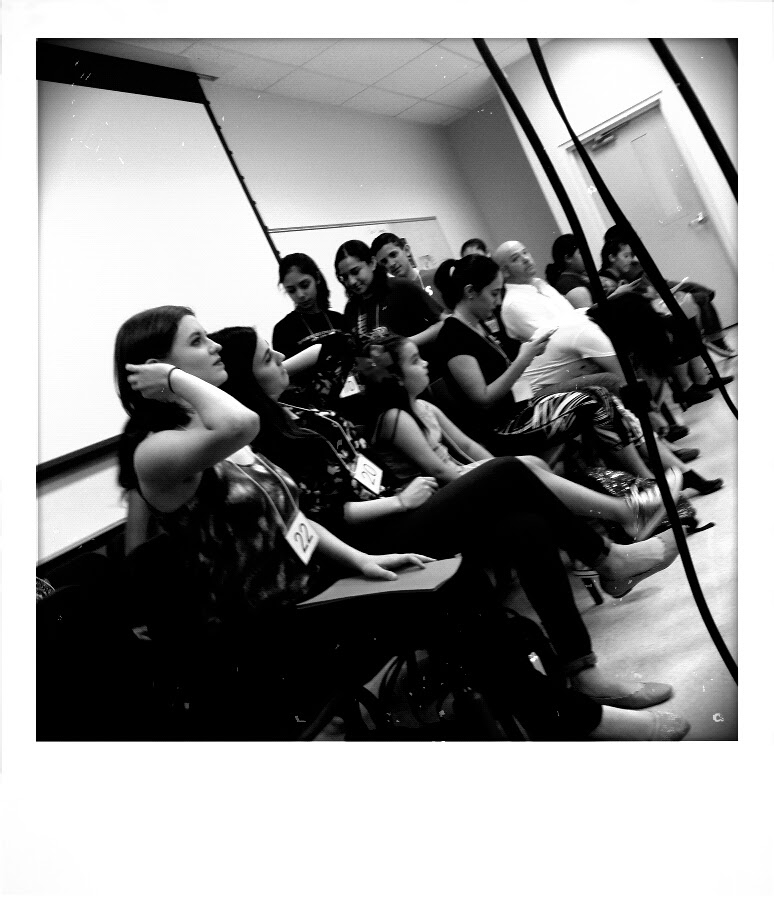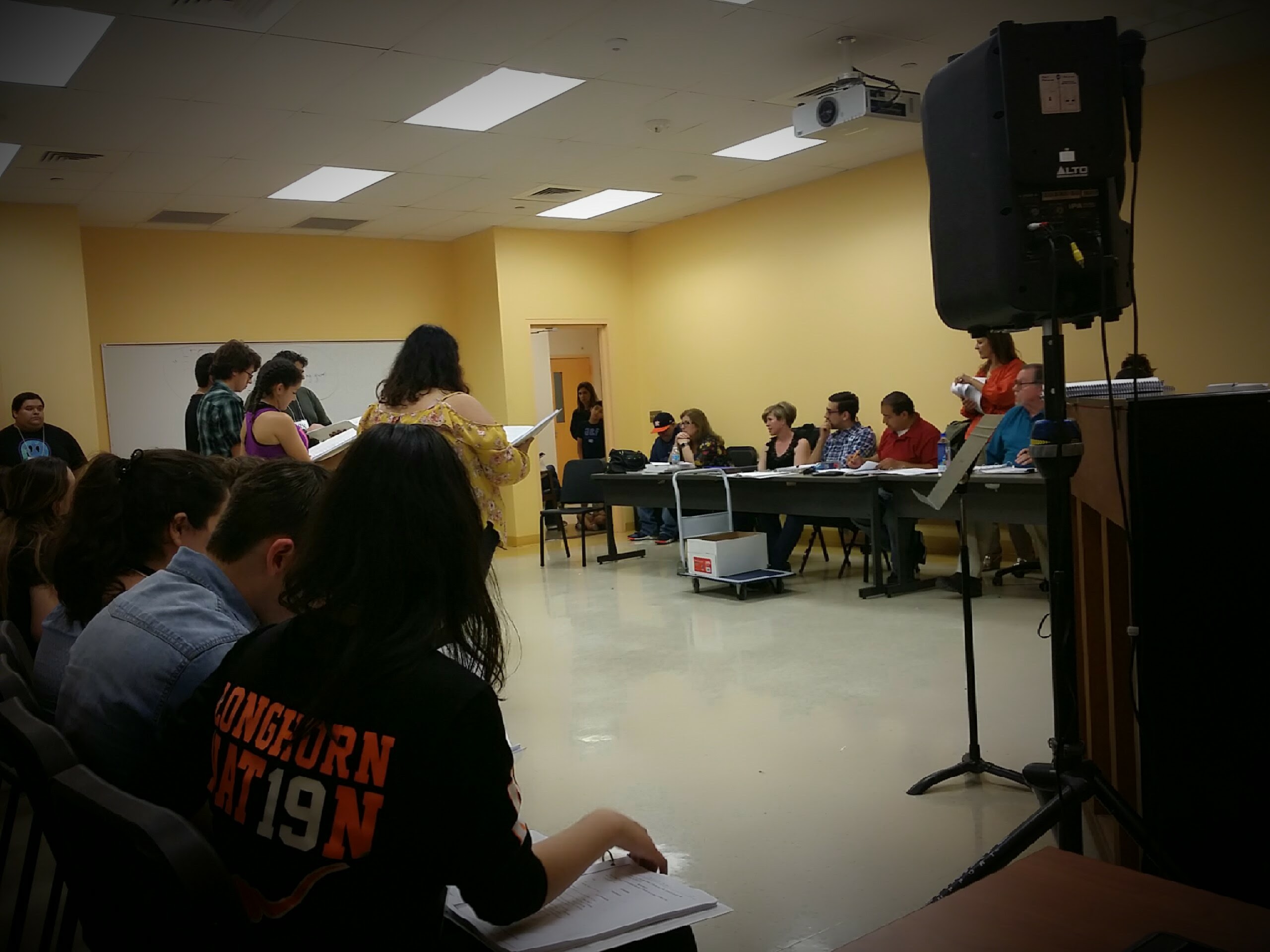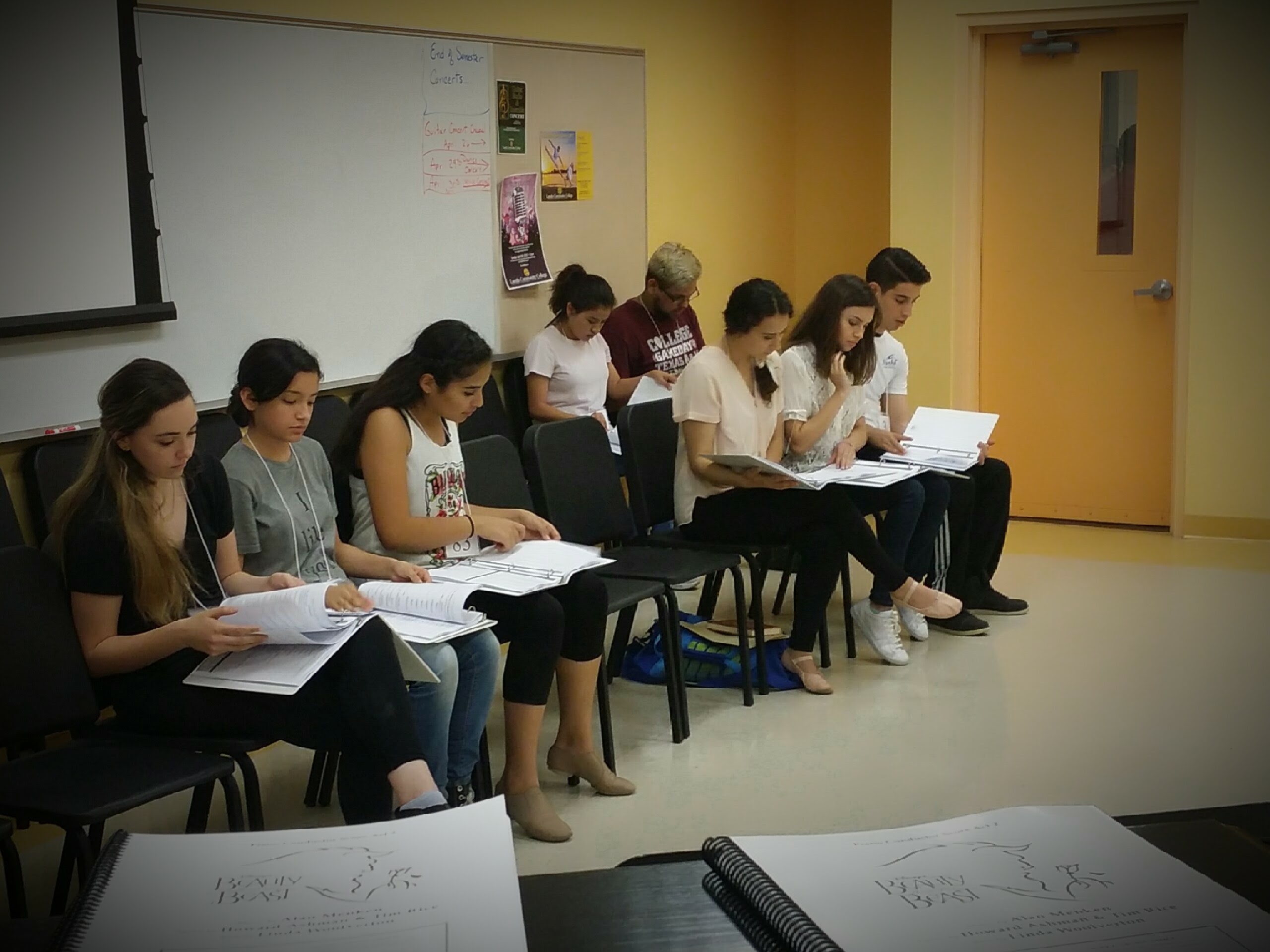The man standing in the front of the large room is speaking.
Crisp and cadenced, his words resonate well across the room, giving away his years in theater. He’s an older gentleman, his voice ringing out clear and sonorous throughout the room like a brass church bell.
It’s a big room. And it is packed.
It’s a bit past 7:00 p.m., Friday, April 28, and the room is a practice room for dancers inside The Visual and Performing Arts Center on the campus of Laredo Community College. The man speaking is Vernon Carroll, President Emeritus of the Laredo Theater Guild International and co-director of the Guild’s summer musical, Beauty and the Beast.
The group of about a hundred people surrounding him in an almost-full circle are standing silently, paying close attention to every word.
They should.
They are all here to audition — all ages, all body types, all here for a chance to show their stuff, live their dream, make something happen.
The room’s hard floor gleams caramel-hued, waxed, and buffed to a high sheen. It reflects ceiling lights at intervals and is lined on two sides with mirrored walls that perhaps reflect the hopes of a hundred possible stars waiting for their chance to shine.
There are as many veterans — drama teachers, their students, dancers, singers — trying out, as there are newcomers. There are a good many willing to take any part, big or small. There are others, hoping to land one of the juicy parts, character actors, relishing the chance to play Lumière, Cogsworth, or Mrs. Potts. Then there are those who only want to be cast as the leads — and who wouldn’t? — brave and book-smart Belle, and the brooding but cursed Beast.
All dreams, all equally valid, all anxious to fulfill.
So the crowd of dreamers listen, as Vernon Carroll introduces himself and lays out the fine points and broad strokes of what the auditions entail, as well as what he, along with the rest of the board, expects of them.
Each person must go through three sets of auditions: dance, singing, and reading. For the dance section, the dance coach is looking to see who can pick up a quick but slightly complex routine, then be able to execute it. The vocal auditions require that a song be sung acapella, or with piano accompaniment or a karaoke machine.
Then there are the readings of an excerpt of the play. It’s called a cold reading. The hopefuls don’t have a chance to practice their lines beforehand. They need to quickly assume a character, while reading in a loud and expressive voice and interacting with others. It’s a vital skill in an art where anything can happen and actors must be able to think on their feet.
Carroll’s introduction is warm, clear, and concise, but underlined with the expectation that any director, professor, or teacher would have.
Vocal Auditions.
“Pick the part of the song that best shows off your voice.”
Auditioning, by its very nature, is a nerve-wracking process:
- Watch some dance steps, learn the dance steps, do the dance steps – in less than fifteen minutes.
- Have a song prepared so you can sing it. Sit in a crowded room filled with others who might be trying for the same part as you, and who may be a lot more talented than you. Then stand up in front of a group of strangers who will judge every nuance of your performance, while behind you sits that same group. You are exposing yourself in a very raw and intimate manner to a whole room of strangers.
- Then open up a copy of the script, get up once again with other strangers who are possibly vying with you for the same role, and then quickly do your best to nail reading as your character – whether or not it’s the character you want to try out for.
But it is also in that crucible of on-demand performance that small acts of courage or resilience come out — compassion, respect.
Everyone auditioning is given a white tag with a number written in black Sharpie. The number is an easy reference when jotting down notes. The same number is found on that person’s audition form.
First to try out is Stephanie Solis Schnyder, belting out a number with fire and passion.
Another number is called.
A little girl steps up, in front of the long plastic table where the board members sit. She introduces herself as Kiara Chinchilla. Then softly she says, “I have an ordinary song. I just found out [about the auditions].” She motions back in Stephanie’s general direction. “It’s not like she sang.”
Perfect.
The whole room breaks out into warm laughter at Kiara’s sweet, honest admission and is completely charmed.
She sings her song.
Her voice falters.
Vernon Carroll gently asks if she knows how to sing “Happy Birthday.” Kiara says yes. He then says to her as well as to the whole room that if they don’t have a song prepared, they can sing “Happy Birthday.” Kiara does. The song ends. Everyone applauds.
The vocal auditions continue.
The selected songs are as varied as those singing them.
Popular modern movie musical adaptation songs – ABBA’s Mama Mia, songs from Hairspray, standards and classics like “My Way,” “My Favorite Things,” “Silent Night,” modern hits such as Vance Foy’s “Riptide,” “La Cucaracha” – inspiredly sung, two very different, but equally compelling versions of Leonard Cohen’s modern classic, “Hallelujah” – one beautifully, gently sung by a young woman named Bella; and another by a tall, muscular, hirsute gentleman in a black t-shirt, jeans, and boots.
Many voices. Strong voices.
Carroll’s calm, steadied directions coax talent — latent, powerhouse, or otherwise.
There are a lot of people auditioning. The room’s packing up. The board changes up the format, going from one by one to rows of six.
So much time gone, people are told that they can stop when they are told thank you. Not enough time now for introductions and complete songs. It’s one by one, and hit your best marks and be ready to stop mid-note.
The ones waiting sit, curled and doubled up with nerves. The oddity of nervous giggling of cut verses due to time crunch.
Many voices. Raw voices. Nervous voices. Unpracticed voices. Fresh voices. Melodic practiced voices ringing clear out as if from a Jane Austen novel.
A one-by-one chorus, a mass of dreams and hopes and wonder, all overfilled, to have a chance to have a hope to sing the song the one that’s you. To truly be you, to shine.
And many people attached to those voices who all handle the stress of singing their soul out in front of strangers. Some paralyzed. Some jittery jumping.
Beauty barely contained. Beauty wanting to tear out past the crude and awkward simple flesh so the butterfly can emerge. Dreams. Dreams struggling to come out. Dreams must come out. And people will do funny things to realize their dreams. Like stand in a row with a number hanging off their neck, singing to a table of gentle strangers, who watch and take in and smile, but do not betray any sense of whether or not you’ve been picked.
The last singer finally finishes, and the board asks all those trying out to step out while they make some deliberations.
So many people, all varied.
So many choices, and variations of choices: townsfolk, body types, character types.
Cold Reading.
The vocal auditions are so lengthy, they’re running over time. Now the same group that danced, that sung, has to read. The remainder of Night One of auditions slows and fragments into slivers of time, as it begins to run out.
9:22
The board is tired.
Lots of decisions to make, lots of talent to choose.
The people trying out, however, are still buzzing, literally buzzing humming with excitement, still elevated by that stage high.
9:53
The auditions end at 10:00 – because the building closes at 10:00
There are still around 40 people left — people who, for whatever reason, cannot return tomorrow for Saturday’s audition. They must be given their opportunity. The board will turn no one away who’s been here from earlier today, who’s already been through the rest of the process.
Either the AC’s been shut off or just the heat of all the people in the room has forced someone to keep a door open for circulation. It’s not helping.
But they wait patiently for their turn, and the board, tired, but just as patient, and with grace, waitsas well, to give everyone their shot, their chance to read.
9:59
Yawns bloom with the late hour, with all the effort. The momentum slows, but decisions must be made by the board.
The board is panning for gold, searching for magic. With the patience of wizards and scholars, they are alchemists divining just the right mix.
10:03
Around 20 young women wait their turn; they wait for Belle.
Three young men stay to read Le Fou, against the 20 Belles.
Dr. Carrol humorously, but respectfully informs the group that what they are going through right now is called, in the industry, a “cattle call.” And this isn’t our first rodeo, he adds.
There is laughter all around.
10:17
The three Le Fous are acquiring one bruise each from 20 feisty Belles in the scene they are reading.
10:27
All the Belles have been dismissed but five, and now the three Le Fous have become two Beasts.
It is a brief but powerful scene they’re reading, where the Beast lets Belle leave to help her father.
10:29
All the remaining hopefuls are dismissed.
The board is left to make decisions — with a possible new whole crop coming tomorrow — in addition to the group that came today.
And what, or who, will come tomorrow?
